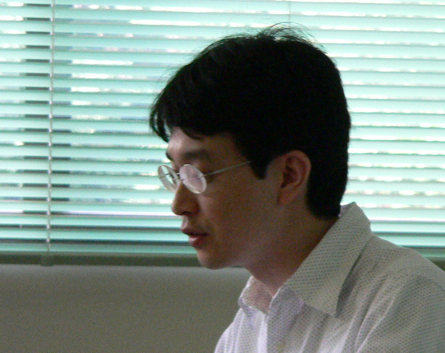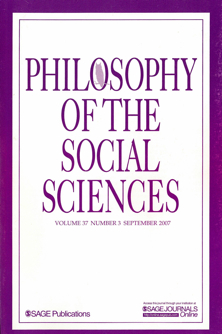[UTCP Juventus] Kei Yoshida
It is now summer vacation. So young scholars at UTCP will introduce themselves on this blog during the vacation. Some will do so in English, but others will not. We are sorry about that. This time, Kei Yoshida introduces himself.
Hi there. I am Kei Yoshida, a postdoc at UTCP. I did my BA in humanities at International Christian University, Tokyo. I started studying philosophy and got my MA at Sophia University, Tokyo. At Sophia University, I studied philosophy of science, in particular, Karl Popper’s critical rationalism. After that, I went to and studied at York University, Toronto and got a Ph.D. there. After getting a Ph.D., I returned to Japan and am working at UTCP. I went to York University to work with two former students of Popper’s, Ian Jarvie and Jagdish Hattiangadi. At York, I studied philosophy of the social sciences, and wrote my Ph.D. dissertation under Jarvie’s supervision. The title of my dissertation is Towards a Rational Philosophy of the Social Sciences: Interpretivism and the Rationality of Other Cultures.
My areas of specialization are as follows: (1) philosophy of science, (2) philosophy of the social sciences, and (3) neuroethics and philosophy of neuroeconomics. Let me explain my interests one by one.
As to philosophy of science, I have thus far written several papers on Popper. My current interest is how we can revive a normative role that philosophy of science played in the past. This corresponds to the current situation that after the 1970s, philosophers of science tend to be descriptive or to study technical problems, and thus avoid important problems of science and society. In this regard, my sympathies are with social epistemologists such as Steve Fuller. Although I have not yet written a paper on this problem, I gave a talk in 2005 at Philosophy of Science Society, Japan, referring to George Reisch’s and Philip Mirowski’s works on philosophy of science during the Cold War.

My second AOS, philosophy of the social sciences, is my main research interest during and after studying in Canada. In my dissertation, I examined the rationality problem in philosophy of the social sciences. The rationality problem has been one of the topical problems in philosophy of the social sciences. It is the problem of how social scientists can/should describe and explain other cultures or their aspects under concepts of rationality. I scrutinized the views of five philosophers and anthropologists—Peter Winch, Charles Taylor, Clifford Geertz, Marshall Sahlins, and Gananath Obeyesekere—and argued that none of them provide a cogent solution to the rationality problem. Parts of my research were published in Karl Popper: A Centenary Assessment (Ashgate, 2006) and Philosophy of the Social Sciences (Vol. 37, No. 3, September 2007).


My third interest is neuroethics and philosophy of neuroeconomics that I started studying after coming to UTCP. In the mid-term education program “Brain Sciences and Ethics” which I belong to, people work on neuroethics from different perspectives. My own work is the neuroeconomics of altruistic behavior. Evolutionary biology has extensively studied altruistic behavior. Thus I would need to investigate how its findings are related to neuroscientific findings and what these findings mean in thinking about human social behavior. As to the neuroeconomics of altruistic behavior, I gave a talk when we invited Thomas Metzinger in February. Improving and polishing the talk, I aim at making a presentation in a foreign conference and at publishing a paper in an academic journal.
I have thus far explained my research interests. It seems to me that science and society are the center of my research. Some might think that I am talking about sociology of science or STS. But I am interested in how we can philosophically talk about science and society and how philosophy itself is related to society. With these points in mind, I shall be doing my work here.
(Written by Kei Yoshida)






